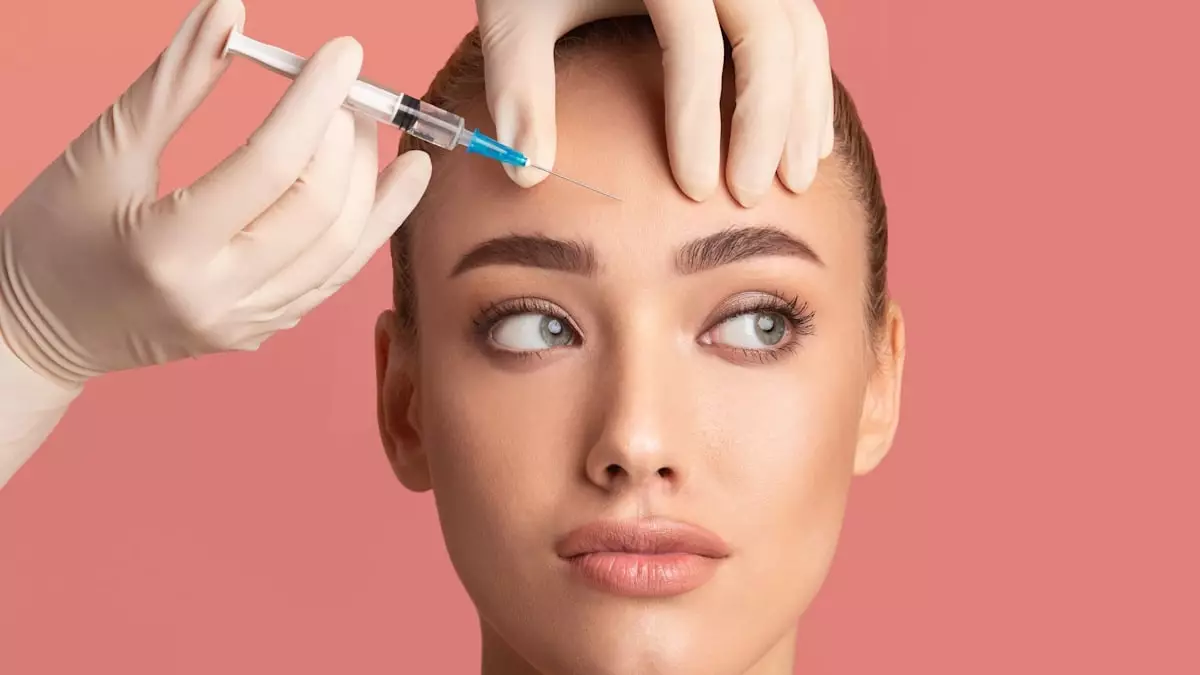As I approach my 50th birthday, the skincare landscape I inhabit as a Beauty Editor feels both exhilarating and daunting. Having spent nearly two decades immersed in the world of skin treatments, I’ve witnessed an evolution of trends from invasive procedures to the subtler, more nurturing approaches of recent years. Among the myriad of treatments available such as lasers, peels, and microneedling, there remains one that I’ve intentionally avoided—Botox. Although I have considered it, especially as I notice increasing lines on my forehead, I grapple with the implications and societal pressures surrounding its use.
Everywhere I turn, I’m bombarded with images of smooth skin and perfectly sculpted faces—symbols of youth that seem increasingly unattainable as I grow older. It’s easy to feel envious of my friends who have opted for Botox to maintain that glossy, youthful appearance. And it’s not a small group; statistics reveal that a growing number of younger people are choosing to undergo ‘prejuvenation’—the act of using Botox to forestall signs of aging. A staggering 27% of Botox recipients were 34 or younger last year, illustrating just how deeply entrenched this alluring beauty standard has become.
I find myself wrestling with the idea that if these treatments become normalized, they could dilute the beauty of authenticity. As a veteran in beauty journalism, I have long championed the notion of embracing our natural selves, wrinkles and all. It’s essential that we foster an environment where raw beauty is celebrated rather than hidden under layers of filler and Botox.
As a mother of two teenagers, I am particularly concerned about the message we are sending to the younger generations—Gen Z and Gen A. The prevalent social media platforms not only allow for self-expression but also distort self-image, as young people often engage with filtered versions of themselves. A recent conversation with Chloe Combi, co-founder of The Respect Project, drove home the sobering reality that an alarming number of “tweakments” have been performed on those under 18, often by unlicensed individuals. The pressure to conform to unrealistic beauty ideals can create an ongoing cycle of dissatisfaction that plagues our youth.
Chloe continues to advocate for initiatives like The Respect Project, which aim to bolster self-esteem and mental health. The growing awareness of the impact of beauty standards is promising, especially as major brands like Cult Beauty have stepped in to support such initiatives. However, it will take a concerted effort to reshape a culture that has become accustomed to perfection.
Experts in the field have noted a concerning trend where younger patients express dissatisfaction with their natural appearance, largely influenced by their online personas. Dr. Jimmy C. Sung, a prominent plastic surgeon, recounts countless instances where patients have approached him for Botox treatments out of sheer frustration with their perceived imperfections. Yet he notes that the issues they identify often do not even exist—merely a figment of the distorted self-image created by digital manipulation.
His insights serve as a vital reminder that while Botox and similar interventions can deliver immediate results, they do not address the long-term health of the skin. Dr. Sung likens Botox to a temporary fix, suggesting that younger generations should be educated on more sustainable, holistic care methods. Non-invasive regenerative treatments, which promote collagen production through natural stimulation, offer a more balanced and health-oriented approach to skincare.
At this juncture in my life, I’m committed to prioritizing the health and vitality of my skin rather than chasing fleeting beauty ideals. During a recent treatment with Sofwave, I was surprised by how revitalized my skin felt, coupled with positive feedback from peers. Such experiences reinforce my belief in the power of natural beauty enhancements over artificial facade.
In a society fixated on youth and perfection, I advocate for a shift in the narrative—a return to authenticity. While I remain open to exploring options like Botox in the future, I value the journey of reinforcing wellness for both my skin and my mental health over quick fixes. Ultimately, aging should not equate to losing our essence; we must celebrate every line, freckle, and imperfection that tells our unique life story.
As I reflect on my path as a Beauty Editor, I reaffirm my commitment to encourage others to embrace authenticity and foster genuine self-love, unencumbered by the scintillating traps of societal pressures. The quest for beauty should always begin with the beauty within.

